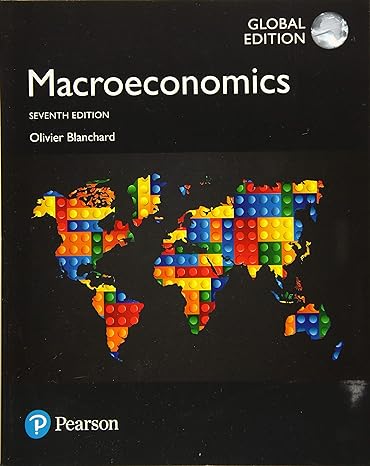Balanced budget versus automatic stabilizers It is often argued that a balanced budget amendment would actually be
Question:
Balanced budget versus automatic stabilizers It is often argued that a balanced budget amendment would actually be destabilizing. To understand this argument, consider the economy in Problem 5.
a. Solve for equilibrium output.
b. Solve for taxes in equilibrium.
Suppose that the government starts with a balanced budget and that there is a drop in \(c_{0}\).
c. What happens to Y? What happens to taxes?
d. Suppose that the government cuts spending in order to keep the budget balanced. What will be the effect on Y? Does the cut in spending required to balance the budget counteract or reinforce the effect of the drop in \(c_{0}\) on output? (Don't do the algebra. Use your intuition and give the answer in words.)
Data from problem 5 Automatic stabilizers In this chapter we have assumed that the fiscal policy variables \(G\) and \(T\) are independent of the level of income. In the real world, however, this is not the case. Taxes typically depend on the level of income and so tend to be higher when income is higher. In this problem, we examine how this automatic response of taxes can help reduce the impact of changes in autonomous spending on output.
Consider the following behavioral equations:
\[
\begin{aligned}
C & =c_{0}+c_{1} Y_{D} \\
T & =t_{0}+t_{1} Y \\
Y_{D} & =Y-T \end{aligned}
\]
\(G\) and \(I\) are both constant. Assume that \(t_{1}\) is between 0 and 1.
Step by Step Answer:






